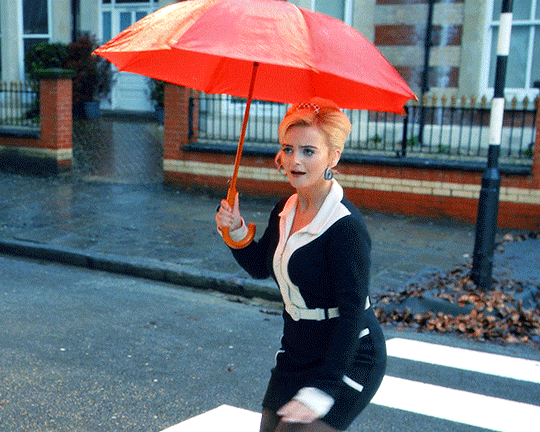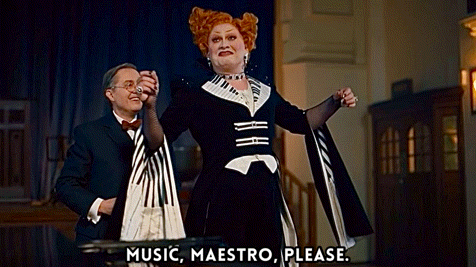#the music in dw one is the last one i wrote literally a year sgo (may 13th 2023) and i really like it
Text
Hey. Has anyone noticed that Maestro and Ruby are similarly colour-coded? Black and white stripes. To go with both being musically-oriented and canonically queer for Maestro and pretty sure queer but as yet to be confirmed for Ruby? That's interesting. The way Maestro says Ruby is wrong and keeps looking at her like they're trying to look into her soul... I hope we see Maestro again.


Also, related but not directly, there's been an emphasis on music since the first episode of Fifteenth. Whether intra-diegetically or extra, music has been important for the past 3 episodes, 4 if we start with The Giggle. Between all the musical numbers (I haven't recovered from the goblins yet and now they hit us with the twist?), the Doctor breaking the 4th wall, Maestro themself, Ruby being a musician... It's not new of course, we remember Twelfth and his guitar, or Simm!Master's drums, but it is being put frontstage here. Is it because Murray Gold is back in charge of the music? Is it RTD's season-long narrative arc? There's something going on in regard to music in this series 14...
I wrote an essay last year (in Spanish and I haven't translated it yet otherwise I'd be posting it) comparing Segun Akinola's score with Murray Gold's and how both have their strength and serve their narrative purpose. Basically, Murray Gold's first score for DW (2005-2017) are orchestral compositions, full of easily recognisable leitmotivs and big instrumental scores that make you vibrate with all the instruments, the song itself sometimes being much more known, recognisable and popular than the work it was composed for (see Duel of the Fates and the likes). Meanwhile, Segun Akinola (2018-2022) pertains to the genre of ambient music, much more interested in the tone and the sonorous atmosphere, something that's very popular today (how many playlists on YouTube or Spotify, you know the ones).
Anyway, I'm not going to sum up my entire essay here, but basically the role of music in a cinematic work has changed over the past 20 years, and Doctor Who followed that change, and now with Gold back in the music booth, there's another change appearing, one where one aspect of this change could very well be the importance of lyrical songs. I'd need to research it more closely to be sure, but that's what it looks like at first glance. How interesting!
#doctor who#rapha talks#murray gold#segun akinola#doctor who music#music score#doctor who score#music#i quite like the 4 essays i wrote for my contemporary cinema class last year i should really translate them so i can get them published#the music in dw one is the last one i wrote literally a year sgo (may 13th 2023) and i really like it#i never studied music (alas - i would have loved to) but as a music obsessed person who cannot stand silence i pay a lot of attention#to musical scores in movies and shows and how they work with or against or over the story#and doctor who being my most favourite story in the universe its music means a lot to me#anyway i'm rambling#if someone who knows more about music than i do wants to add/correct/approve something come talk!#rapha is being a whovian
4 notes
·
View notes